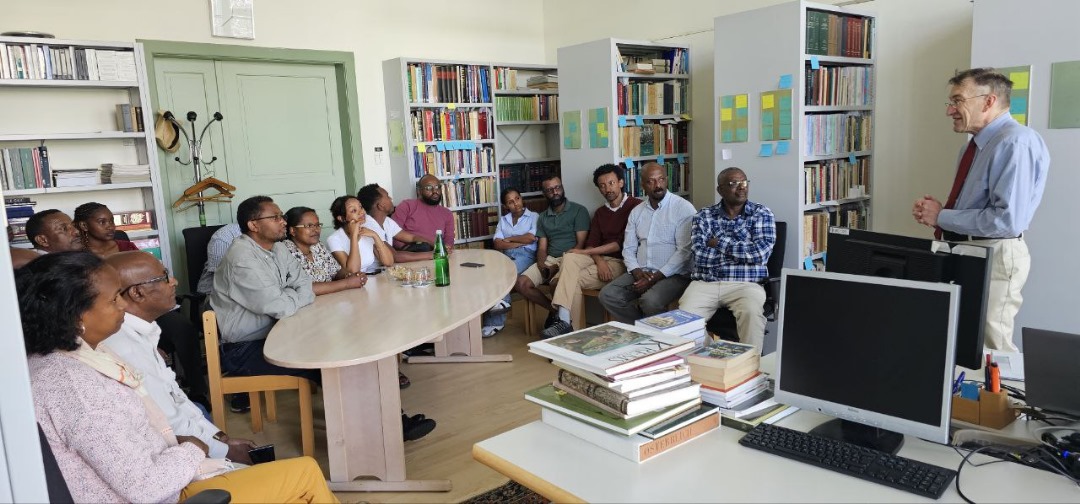During a visit by partners of the GIRT project from Ethiopia and Mozambique (GIRT: “Strengthening Research and Educational Competences for Gender-sensitive Urban (Informal Settlement) Transformation”) to the University for Continuing Education Krems, there was an opportunity for a stimulating exchange of ideas at the Jiří Toman Center (JTC).
Research topics relevant to the JTC, such as the restitution of cultural property from a postcolonial perspective with the involvement of international actors, as well as the perception of cultural heritage using the example of the World Heritage category “cultural landscape,” were presented and discussed from various perspectives.
The “Obelisk of Aksum” in Ethiopia was brought to Rome on the orders of Benito Mussolini after the victory of Italian troops in the Abyssinian War and erected there in 1937. Although Ethiopia had been demanding its return since 1947 (and Italy had regularly promised to do so), it was not repatriated until 2005, and it took another three years before it was erected. The ruins of the ancient city of Aksum were added to the World Heritage List already in 1980.
The different interpretations of World Heritage cultural landscapes and their various management approaches were also discussed using the example of the World Heritage site “Konso Cultural Landscape”. This cultural landscape was proposed by Ethiopia for inclusion on the UNESCO World Heritage List. However, ICOMOS (which advises the World Heritage Committee on matters relating to world cultural heritage) opposed its inclusion on the list. The World Heritage Committee, however, did not follow this recommendation and added the landscape with its characteristic dry stone wall terraces to the list in 2011: This example underscores the political nature of the World Heritage List: While ICOMOS applied a Western-influenced concept of cultural landscape when assessing “eligibility for inscription,” which a cultural landscape in the African context could not meet, in this case the World Heritage Committee, consisting of 21 states, overruled the ICOMOS recommendation (not to inscribe) based on geopolitical considerations in order to demonstratively counter the “Eurocentrism” of the World Heritage List. The Committee was criticized for “politicizing” the prestigious list because of this decision.
The inspiring exchange with scholars, researchers, and students from Ethiopia and Mozambique demonstrated the enormous potential of intercultural cooperation in the field of cultural heritage. The JTC is pursuing the consolidation of these efforts through a joint research project.
Peter Strasser
Queries
Further Information
Tags
